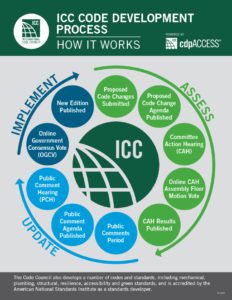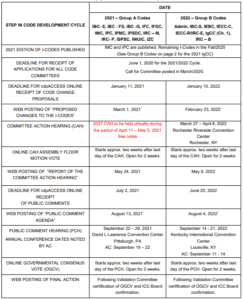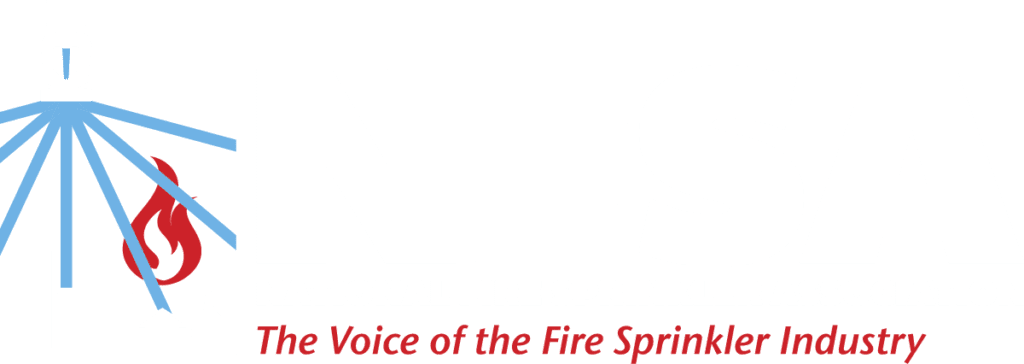Understanding the Model Code Development Process
Within the last couple of weeks, the newest edition of the International Code Council’s (ICC) model codes has become available to purchase. States and municipalities around the country will be preparing to adopt and enforce these new model codes. On the heels of this event comes the beginning of the development of the 2024 editions of the model codes.
The code development process of the ICC is broken up into two cycles; Group A and Group B. Due to the immense amount of time that it consumes and the large amount work that must be completed, it must be split between these two cycles. Group A includes the development of the IBC (Egress – IBC Chapter 10, Fire Safety – IBC Chapter 7, Green), IFC (includes Chapter 9, fire protection systems), IFGC, IMC, IPC, IPMC, IPSDC, IRC (Mechanical, Plumbing), ISPSC, IWUIC and the IZC. Group B includes the development of the Administration chapter of all the I-Codes, IBC (Structural), IEBC, IECC (Commercial and Residential), IRC (Energy), IgCC (Ch. 1), and the IRC (Building).
The process for each cycle is the same and anyone can submit proposals for potential code developments. The first step in the development process is the submission of code change proposals. The ICC has a portal in which the code change proposals are submitted. This portal is called cdpACCESS (stands for code development process access) and found here. Once an account is created, one can go through the process of submitting a code change proposal. Once the deadline is passed for code change proposals, a monograph of all the proposed changes is published for public review. Once the proposed changes are published for review, the Committee Action Hearings (CAH) occur. Several Code Committees are assembled of industry experts to review the proposed changes that are specific to the committee’s expertise. The committee then hears arguments from the proponents and opponents of the code change proposal. The committee then decides on the code change proposal.
 Photo Courtesy of ICC
Photo Courtesy of ICC
Once this step is completed the results of the Committee Action Hearings are published and the public comment portion of the process begins. If a proposal was voted down at the Committee Action Hearings; proponents of the code change proposal can amend the proposal and address any issues that the Code Committee had with the proposal. Additionally, the same can be done with proposals that were approved. If no public comments are made on the proposals that were voted down; this is where those proposals end. Once this step is complete all public comments are then published for review. Once reviewed the Public Comment Hearings (PCH) occur. At this hearing, the proponents, and opponents to the proposals make their arguments to the registered voting body that is present at the hearing. Once the arguments are complete, the eligible voting body present a vote on each proposal. If a proposal is approved; it makes it onto the final voting ballot. If a proposal is denied; this is where the proposal ends.
The results of the Public Comment Hearing are then published for final review. Once this step is complete the Online Governmental Consensus Vote occurs (OGCV). This voting occurs online within the cdpACCESS portal. Only eligible voters are permitted to vote. Eligible voters include validated governmental members, corporate members, and honorary members. All proposals approved in the OGCV voting goes onto the making of the 2024 edition of the I-Codes.
Each group cycle takes a year to occur. Therefore, the Group A code cycle will occur in 2021 and Group B will occur in 2022. However, COVID-19 has altered the scheduled. Below you can find the schedule for the Group A code cycle that will occur next year.
 Photo Courtesy of ICC
Photo Courtesy of ICC
The National Fire Sprinkler Association is submitting several code change proposals that will further the cause of the fire sprinkler industry. You too can do the same. You can be part of the code development process. If you have a proposal, please submit it to be considered. The deadline for submitting a proposal is January 11th. Be part of the change.
